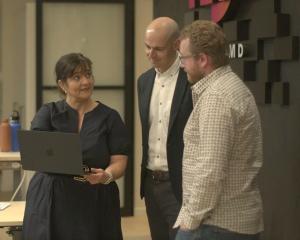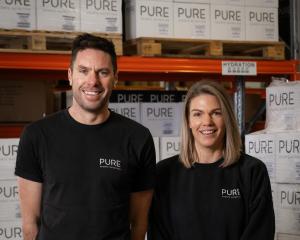
Bodeker Scientific is part of a consortium led by Victoria University that has been granted $10,273,285 for a five-year project on extreme events and the emergence of climate change.
Victoria University project director Prof David Frame said owner and director Dr Greg Bodeker had been essential to securing the funding.

They would contribute to a disaster database to help understand weather-related natural disasters, Prof Frame said.
''Greg will be helping to build an understanding of what New Zealand's past extreme events have been.''
Dr Bodeker said the project would build on the success of his company's $1million project from last year's Endeavour Fund - a tool called extreme weather event real-time attribution machine (Eweram).
''Off the back of that we've built this much bigger programme to take a much more holistic look at extreme weather events.''
The project was wide-ranging, looking at climate events including droughts, floods, extreme rainfall or extreme temperatures.
''We look back into the past and assess how well our models can reproduce the situation that led to previous extreme weather events.''
Having accurate models of past extreme events could enable them to ''project forward'' and make ''quantitative statements'' about how the frequency and severity of extreme events could change over the next 100 years.
A second Alexandra organisation, Xerra, (formerly the Centre for Space Science Technology) will be involved in two successful projects.
First is a $1million Smart Ideas project to help develop new 3-D change maps of New Zealand.
Principal scientist Dr Dave Kelbe will work alongside the University of Otago, GNS Science, Land Information New Zealand and Meridian Energy on the project.
The project team's vision was to ''develop a novel way to make 3-D change maps with unprecedented detail and sub-metre accuracy, and then make those maps available to end-users through a web-based service, to ensure that communities are resilient to geohazards'', he said.
Xerra will also be working on a $13.7million research programme called Forest Flows.
The programme is led by Scion and includes the universities of Auckland and Waikato, Niwa and international institutions.
The aim of the project was to develop a fast and accurate way to measure how much water evaporates from or flows through planted forests.
Xerra CEO Steve Cotter said its scientists would provide remote sensing measurements and data science expertise to help develop 3-D spatial water quantity and quality models.
These would help maximise New Zealand's water supply, improve water quality and ensure regional water security.
Data generated will also help protect primary sector productivity, providing critical information to the timber industry.
''I'm looking forward to seeing these new collaborative projects deliver the positive impact that we know space-based data and artificial intelligence can achieve.''












